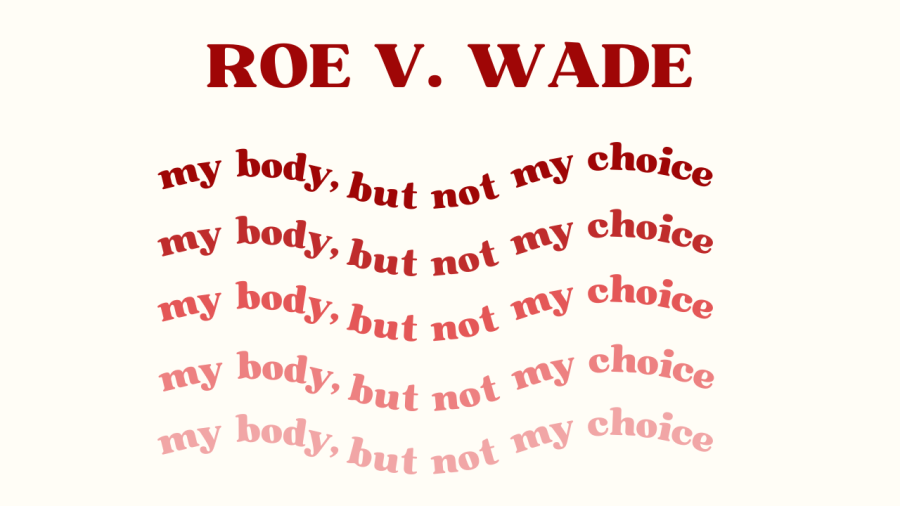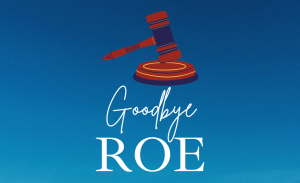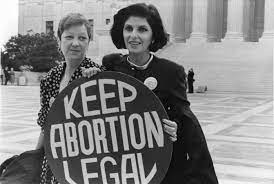Roe v. Wade: My Body, But Not My Choice
Why are other people making choices for my body?
With Roe v. Wade overturned, more than 60 million people face bans over their own body.
June 26, 2022
As a teen girl in the United States, I worry. I worry about getting catcalled while on the streets. I worry about not being enough for society. I worry that I will be scrutinized. I worry that my opinion will be pushed to the side. Now, I worry about my future more than I ever have.
With the decision made by the Supreme Court of the United States, close to half of the population in the U.S. has now lost the right to choose what they want to do with their own body. Single handedly, five people in the United States have changed the lives of millions of people in the country.
I am scared by the fact that I have lost the ability to my own bodily autonomy before even getting my drivers license. I cannot legally drive by myself on the highway, but I can be forced to have a child I do not want.
Just because someone gets an abortion does not mean they never want a child. Some people do not have the means to support themselves, let alone a child. Some people risk their lives if they carry a fetus. Some people are victims of sexual assault or incest.
While some people believe that Roe v. Wade only concerns whether or not abortion should be a federal right, there is far more to it than just abortion, as it affects nearly everybody.
With the overturn of Roe v. Wade, the right to sexual privacy, right to contraceptives, and the right to LGBTQ+ marriage and intercourse are now at risk. In 1965, Griswold v. Connecticut helped to establish the right to sexual privacy and the right to use birth control under Due Process Clause of the 14th Amendment.
As well as that, the rights for people a part of the LGBTQ+ community are also severely at risk. Lawrence v. Texas was case in 2003 that established the constitutional right to same-sex intercourse based on the Due Process Clause of the 14th Amendment. By overturning this case, the right to consensual intercourse as a member of LGBTQ+ is put at risk.
LGBTQ+ marriage rights have also been threatened as well, as Supreme Court Justice Clarence Thomas has also voiced alongside Lawrence v. Texas, that Obergefell v. Hodges should be reconsidered. Obergefell v. Hodges established the right in 2015 for same-sex marriage to be allowed, under the Due Process Clause of the 14th Amendment.
This is not just an issue concerning people with a uterus.













